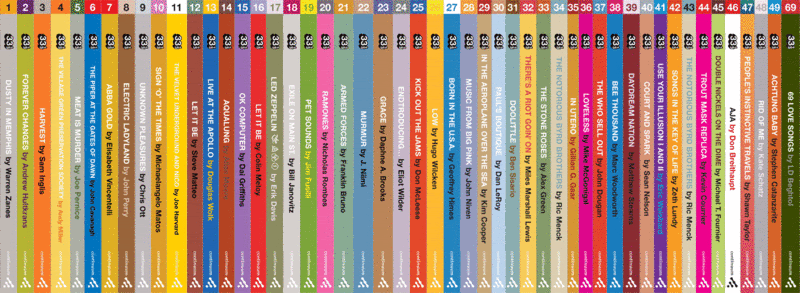Audio Theory
Posted in The Gnovis Blog
I think up until this point I’ve been intimidated to write anything for the Gnovis blog here on the plans I am laying for my thesis next year. It still feels so early on in the process that ideas are rough and subject to drastic change. I’ve gotten to that point, though, in the brain storming process that I feel comfortable trying to lay out some of the questions I’m grappling with.
 The general area of inquiry I want to engage with is contemporary American remix culture. (If anyone cares, at all, I have written a short, quirky piece on my relationship with remix culture grown up here). Of course, this could apply broadly to any number of cultural products that take pre-existing texts as points of departure. Trish and I have both written for Gnovis about vids, audio-visual television and film remixes, for example, and I am also interested in things like romhacks, textual remixes like A Humument, and short-form video productions like Auto-tune the News.
The general area of inquiry I want to engage with is contemporary American remix culture. (If anyone cares, at all, I have written a short, quirky piece on my relationship with remix culture grown up here). Of course, this could apply broadly to any number of cultural products that take pre-existing texts as points of departure. Trish and I have both written for Gnovis about vids, audio-visual television and film remixes, for example, and I am also interested in things like romhacks, textual remixes like A Humument, and short-form video productions like Auto-tune the News.
Despite this diversity of the field, however, a thorough engagement with the audio remix will be necessarily central to the work. Of course, even within this category there is significant variation – remixes that reassign generic markers, mashups that draw on more than one source track, original songs that nevertheless make significant use of samples – but as the basis for the way we understand everything that has come since then, audio-only remixes are unavoidable. What has been problematic, then, in trying to identify the major theoretical players in this game is that, woefully, audio artifacts have not been nearly as heavily theorized as other forms of cultural production – movies, television, books, etc.
This is not a fact that had escaped my attention up to this point in my life. I’ve always been very interested in musical culture, and there’s a wealth of scholarly work it in disciplines like ethnomusicology and music history. There are some fantastic texts like the 33 1/3 series, which think about the production and circulation of contemporary albums. But there isn’t nearly as much Cultural Studies work on music as it relates to power, ideology, and subjectivity, which is what I would ideally want.

What we do have may also offer part of the picture as to why this is. If my central question is to what extent remix culture can be said to offer liberation, then the Culture Industry work by the members of the Frankfurt school will offer the best starting point. Horkheimer and Adorno, in fact, dealt specifically with popular music as represented by Jazz in their seminal essay, “The Culture Industry: Enlightenment as Mass Deception.” What they offer, however, is a view of popular music as degraded and deployed primarily to allow release for the working classes so that they will ultimately remain satiated in their oppressed places in the world. Since then, Fredric Jameson has offered updates to their work which seeks to maintain their focus on the ideological elements of media, while contextualizing this within an idea that individual artifacts today are able to mobilize this manipulation against the backdrop of parallel utopian content. Where he deals with music specifically, however, in “Reification and Utopia in Mass Culture,” he does so only to suggest that music more than any other form takes on individualized meaning for listeners who associate it with elements of their own lives and specific listening contexts, and while I don’t disagree, it’s this kind of thinking that allows music to be swept aside in our examinations of the media landscape.
I also think that generally the form of the medium for an individual song does not lend itself to analysis in the same way that a single film, for example, does. It‘s short and a lot of the material is sonic and therefore precarious to decode. However, moving forward for me, the rationalization of my entire program of attention to popular and even “low” culture (as well, obviously, as the specifics of this area of study) impels me to pay attention to the music. The specifics of its form which make it less interesting to academics also ensure that its messages circulate just as if not more broadly than other media in America and therefore the specific meanings being made are more than worthy of our attention.
